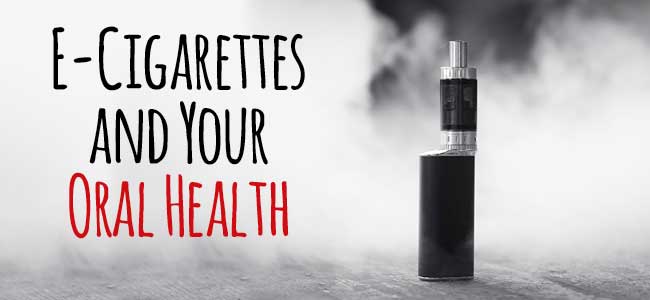How Long Does It Take for Dental Implants?

When it comes to maintaining excellent oral health, regular visits to the dentist are crucial. But sometimes, even those who visit the dentist regularly can experience tooth loss or other dental issues. That’s where quality restorative dentistry comes in at AV Sierra Dental Center. Our restorative solutions include a variety of procedures that can help repair or replace damaged or missing teeth, including dentures and dental implants in Palmdale, CA. So if you’re experiencing dental issues, don’t hesitate to speak to our qualified dental professionals about your restorative dentistry options. Dr. Jason Oh, Dr. Shanne Sastiel, Dr. Michael Tran, Dr. Catherine Vu, and our Orthodontist, Dr. Hanseen, can help improve your smile’s appearance and overall health and quality of life. Book an appointment today to get started. We can help you understand how long dental implants take, factors that may affect this timeframe, and what you can expect during the process. The Dental Implant Gold Standard Dental implants are often considered one of the best solutions for people with missing teeth. They are also considered the gold standard of restorative dentistry. They are metal or titanium posts surgically implanted into the jawbone, which serves as the base for replacement teeth. One of the most frequently asked questions about dental implants is how long the entire process takes. Evaluation and Planning Phase Before starting the implant process, you must undergo a comprehensive dental evaluation. During this phase, your dentist will examine your oral health, including identifying any underlying dental problems that must be resolved before proceeding with the implant procedure. The evaluation phase also involves taking X-rays and creating impressions of your mouth. Depending on the extent of these evaluations, this phase may take 2-3 weeks. Implant Placement Procedure The implant placement procedure begins once we complete the evaluation and planning phase. This procedure typically involves surgically placing the implant post into your jawbone, where your natural tooth root is located. The process uses local anesthesia to numb the area. The procedure may take 1-2 hours, depending on the complexity of your case. Osseointegration Phase After we implant the post successfully, the implants must fuse with the surrounding bone. Osseointegration is the process where the bone fuses with the base, which takes several months. During this phase, the bone around the implant post will gradually grow and connect with the implant, giving it the support it needs to hold a replacement tooth. The osseointegration phase usually takes 3-6 months, depending on the patient’s age and overall health. Placing the Abutment and Crown Once you complete the osseointegration phase, your dentist will attach the abutment, a connecting piece connecting the implant post to your replacement tooth. Your dentist will then take impressions of your mouth to make a custom-made replacement tooth. The final step involves attaching the crown to the abutment, which is screwed or cemented over it. The final phase usually takes 2-4 weeks, depending on the type of teeth replacement chosen. Recovery Time After the crown is attached, you may experience some soreness or discomfort that can last a few weeks. You may have to avoid certain foods or habits, such as smoking or consuming alcohol, to ensure the healing process is not delayed. You may also need to attend follow-up visits to ensure the implant process is successful. Dental Implants in Palmdale, CA The dental implant process takes several months and requires your patience and commitment for success. Each phase plays a vital role in achieving optimal results with your dental implant treatment. Age, oral health, and medical conditions can affect how long the entire process may take. Many patients love dental implants for their natural look, lasting quality, and restored functionality. Always discuss your treatment options with your dentist to understand what to expect in advance. Working with an experienced and professional dentist can make all the difference if you are considering dental implants. AV Sierra Dental Center specializes in dental implant procedures and can help address your questions and concerns related to the process. Contact us today, and we’ll assist you in achieving your best dental health.
Do Whitening Toothpastes really work?

Do Whitening Toothpastes Really Work? A bright, white smile is something that many people desire. Unfortunately, lifestyle habits such as smoking, drinking coffee or tea, and eating certain foods can cause teeth to become discolored or stained over time. As a result, many people turn to whitening toothpastes as a way to brighten their teeth and restore their smile. But do these products really work? Whitening toothpastes are designed to remove surface stains from teeth and help brighten your smile. They often contain abrasive particles, such as baking soda, that help scrub away surface stains, as well as chemicals like hydrogen peroxide that can help break down stains and remove discoloration. While the effectiveness of these ingredients can vary, many people report that they have had success using whitening toothpastes to improve the appearance of their teeth. One study published in the Journal of Clinical Dentistry found that a whitening toothpaste containing baking soda and hydrogen peroxide was significantly more effective at removing surface stains than a standard toothpaste. Another study published in the Journal of the American Dental Association found that a toothpaste containing baking soda and peroxide was effective at removing extrinsic stains caused by coffee and tobacco. While these studies suggest that whitening toothpastes can be effective, it’s important to keep in mind that the results may not be as dramatic as those achieved with professional teeth whitening treatments. Additionally, whitening toothpastes may not be effective for deeper or more stubborn stains caused by medications or certain medical conditions. It’s also important to note that not all whitening toothpastes are created equal. Some may contain higher levels of abrasive particles that can potentially damage tooth enamel if used excessively. Others may contain ingredients that can irritate sensitive teeth and gums. When choosing a whitening toothpaste, it’s important to look for products that have been tested and approved by dental professionals. Products that carry the American Dental Association (ADA) Seal of Acceptance have undergone rigorous testing to ensure that they are safe and effective for use. It’s also important to follow the instructions for use carefully. Whitening toothpastes should be used as directed, typically for two minutes twice a day, and should not be used excessively. Overuse of abrasive toothpastes can potentially damage tooth enamel and increase sensitivity. While whitening toothpastes can be an effective way to remove surface stains and brighten your smile, they should not be used as a substitute for good oral hygiene habits. Brushing twice a day with a fluoride toothpaste, flossing daily, and visiting your dentist regularly for cleanings and checkups are all important steps in maintaining good oral health. If you are looking for more dramatic results, professional teeth whitening treatments may be a better option. Your dentist can recommend the best treatment option based on your individual needs and goals. Whitening toothpastes can be an effective way to remove surface stains and improve the appearance of your teeth. While their effectiveness may vary depending on individual factors, many people report success using these products. However, it’s important to choose a product that has been tested and approved by dental professionals, use it as directed, and not rely on it as a substitute for good oral hygiene habits. If you are looking for more dramatic results, professional teeth whitening treatments may be a better option. If you are in the Palmdale, CA area and looking for professional teeth whitening options, AC Sierra Dental Center can help. Their experienced team of dental professionals can provide customized whitening treatments that are safe and effective. They can also provide guidance on how to maintain your bright new smile and keep your teeth healthy. Remember, maintaining good oral hygiene habits is essential for overall dental health, and regular visits to the dentist for cleanings and checkups can help prevent and address any dental concerns. By taking care of your teeth and utilizing the resources available, you can achieve the bright, healthy smile you desire.
Do You Know How Food Affects Your Teeth?

Oral health is an essential part of our overall health, and it starts with taking care of our teeth. One significant factor that affects the health of our teeth is the food we eat. Understanding how food affects your teeth and what you can do to maintain good oral health is a great first step to having healthy teeth can gums. The basics of tooth anatomy and function Before we dive into how food affects your teeth, let’s go over some basics of tooth anatomy and function. Teeth have different parts that work together to help us chew and speak. The crown is the visible part of the tooth, and the root anchors it to the jawbone. Enamel, the hard outer layer of the tooth, protects the tooth from damage and decay. The dentin and pulp are located inside the tooth and contain nerves and blood vessels. Foods that can harm your teeth Some foods are notorious for causing harm to teeth. These foods are usually high in sugar and acid, which can erode enamel and cause cavities. Candy, soda, and citrus fruits are common culprits. When you consume these foods, the sugar and acid mix with the bacteria in your mouth to create plaque. Plaque is a sticky film that can build up on your teeth, leading to decay and gum disease. To reduce the harm from these foods, it’s best to limit your intake. If you do indulge, drink water afterward to help wash away the sugar and acid. You can also chew sugar-free gum to stimulate saliva production, which helps neutralize the acid. Foods that can help your teeth Eating a balanced and nutrient-rich diet can benefit your oral health. Some foods are even good for your teeth. For example, dairy products, leafy greens, and crunchy fruits and vegetables are excellent choices. Dairy products like cheese and milk are high in calcium and phosphorus, which help strengthen enamel. Leafy greens like kale and spinach are full of vitamins and minerals that promote overall health. Crunchy fruits and vegetables like apples and carrots can help clean teeth by stimulating saliva production and scrubbing away plaque. Tips for maintaining good oral health In addition to being mindful of what you eat, there are other things you can do to maintain good oral health. Here are a few tips: Brush your teeth twice a day with fluoride toothpaste Floss at least once a day to remove food particles and plaque from between your teeth Use mouthwash to help kill bacteria and freshen your breath Drink plenty of water throughout the day to help wash away food particles and neutralize acid Schedule regular dental check-ups to catch any problems early The food you eat can have a significant impact on the health of your teeth. By avoiding sugary and acidic foods and eating a balanced diet rich in nutrients, you can help keep your teeth healthy and strong. In addition to eating well, it’s important to maintain good oral hygiene habits and visit your dentist regularly. At AV Sierra Dental Center in Palmdale CA, we’re committed to helping you achieve optimal oral health. Contact us today to schedule an appointment.
Stressed Out: Can Stress Affect Your Teeth?

You have too much to do at work. You have to juggle a million tasks between your children, your spouse, and errands — not to mention your mother-in-law is in town for the weekend. We all have those days, and those days can add immense stress to your life. That stress affects more than just your emotional health; it physically alters you as well. Your mouth already experiences daily wear and tear that you need to prevent as much as possible. If you are too stressed, this adds another layer of factors fighting against the health of your mouth. It starts before you even realize — you are stressed out thinking about everything you need to do, and then you notice you’ve been clenching your teeth for the past few minutes. Depending on how you handle stress, you may be doing this multiple times per day, which takes a toll on your mouth. Signs of Stress Impacting Your Oral Health 1. Poor At Home Oral Hygiene When we are stressed self-care may become less important. We can start over indulging in comfort foods high in carbs, sugar, and caffeine. A poor diet and ignoring our regular oral hygiene routine can lead to plaque buildup, caries, and even tooth loss. 2. Dry Mouth Saliva keeps teeth moist, helps fight bacteria, and helps removes food particles from your teeth. But when you are trying to manage increased stress, your saliva production can be reduced. This can result in increased plaque buildup and a higher likelihood of dental problems. 3. Clenched Jaws The constant muscle tension in your jaw that can result from chronic stress can cause TMD or temporomandibular disorder. This condition causes pain in your temporomandibular joint (TMJ), your jaws, and around your ears. You may also experience difficulty opening your mouth or chewing food or even hear a clicking noise. If left untreated, bruxism can also destroy dental restorations (fillings, crowns, bridges, etc.) that you’ve had done, creating more pain and costing more money. 4. Teeth Grinding Teeth grinding or bruxism is a common symptom of stress or anxiety. This is often an unconscious action so many people are unaware of their teeth grinding, especially if they are grinding their teeth while they sleep. Grinding teeth results in significant wear and tear on your teeth. This can lead to damage to the enamel, chipped teeth, loose teeth, increased sensitivity, and pain in your temples. 5. Decreased Immune Response Stress often has a detrimental effect on your immune system. A reduced immune response makes it harder to fight off infections, and high levels of cortisol ( a hormone related to stress) lead to protein production in the gums causing inflammation and increasing the likelihood of developing gum diseases like gingivitis and periodontitis. 6. Cold Sore Blisters Cold sores are caused by the herpes simplex virus. Many people can go for months without dealing with a cold sore however increased stress is a common trigger. Cold sores typically appear on the lips or corners of the mouth, in some instances they can also appear on your gums leading to difficulty brushing and flossing. How to Prevent Teeth Grinding and Clenching Since one of the main causes of teeth grinding and clenching is stress, the best way to stop is to reduce your stress. Hold on — put down that glass of chardonnay or moonshine you have after work to unwind (alcohol increases the likelihood of teeth grinding while sleeping). Here are some stress-management techniques that will help reduce your overall stress. Exercise. Not only does this release endorphins to help combat stress, but at the end of the day, you’ll be too tired to have stress-inducing thoughts. Autogenic relaxation. This method involves “commanding” your body to relax. This takes a lot of practice but can be very effective once learned. Learn more about autogenic relaxation here. Visualization. Trying to use all five of your senses, imagine a scenario that is relaxing. For example, if you imagine yourself in a forest, listen to the sway of the branches, feel the warm light creeping between the trees, and note the scent of pine needles. Listen to your favorite music. Classical is always a reliable genre to relax to, but listen to the type of music that helps you unwind. These techniques will only work if you allow them to. When using them, ensure you have an open mind and allow yourself to relax. Everyone is different, and it will take time to find what relaxes you, as well as mastering the technique itself. The benefits of stress-management strategies will not only help your teeth-grinding issue but also provide benefits for many other health issues you may be experiencing. Other Stress Reducing Tips to Consider If you notice throughout the day that you are still clenching, stick the tip of your tongue between your teeth. This will force you to relax your jaw muscles. According to the TMJ Association, take anti-inflammatory medicine (such as ibuprofen) to help with swelling and pain until you can get your teeth grinding and TMJ/TMD under control. Check with your physician to see if you are able to take anti-inflammatory medicines. Place a warm washcloth on your jaw before you go to bed to help relax your muscles. If you try these stress-relieving techniques and are still experiencing pain related to clenching and grinding, your Palmdale, CA dentist can do an examination to determine the best course of action. In most cases, your dentist can create a mouth guard/splint to prevent clenching and grinding. Additional Dental Services May Include: Managing pain with a special diet Stretching exercises Anti-inflammatory medications For more information about stress and your dental health, request an appointment at AV Sierra Dental Center by calling 661.202.3542 today. Reference: Stress management. (n.d.). Retrieved July 12, 2016, from https://www.mayoclinic.org/healthy-lifestyle/stress-management/in-depth/relaxation-technique/art-20045368 Teeth Grinding (Bruxism): Causes and Treatments. (n.d.). Retrieved July 12, 2016, from https://www.webmd.com/oral-health/guide/teeth-grinding-bruxism TMJ Association, Ltd. (n.d.). Retrieved July 13, 2016, from https://www.tmj.org/site/page?pageId=257
E-Cigarettes and Your Oral Health: The Smokeless Threat to Your Smile

For many smokers, e-cigarettes seem like the best answer to avoiding the nasty side effects of smoking traditional cigarettes, including the odor and the staining of teeth, skin, and clothing. Though e-cigarettes still contain the highly addictive chemical nicotine, tobacco and other harmful elements are eliminated from the electronic smoking process, or what some refer to as “vaping.” The growing popularity of e-cigarettes and vaping, especially among young people, has caused a rise in concern over the lack of knowledge around the effects it has on health. While clinical studies are currently underway, in 2014 the U.S. Food and Drug Administration (FDA) released a statement saying “e-cigarettes have not been fully studied, so consumers currently don’t know the potential risks of e-cigarettes when used as intended, how much nicotine or other potentially harmful chemicals are being inhaled during use, or whether there are any benefits associated with using these products.” Vaping has a direct effect on oral health. Exposure to e-cigarette aerosol can lead to an increase of bacteria in the mouth, which is associated with gum disease, cavities, and tooth decay. The flavoring added to many e-cigarettes can also lead to cavities, not to mention an increased chance of developing chronic lung diseases. It can also cause dry mouth, inflamed gums, and other issues dentist are able to speak to how these new smoking devices threaten your oral health. Nicotine is harmful to your teeth and gums, even in the absence of tobacco and other chemicals traditionally found in cigarettes. Electronic cigarettes still deliver nicotine to their users through the mouth, throat, and lungs. The following are some of the consequences that come with using smokeless cigarettes. Gum Disease: One of the highest risks of e-cigarettes is an increased risk of gum disease coming from three specific conditions. Nicotine leads to Vasoconstriction, which is the limiting of the blood supply to the gums. When the blood supply to your gums is reduced it makes the more susceptible to infection and can lead to gum recession. Gum disease is caused by plaque bacteria. Smoking dries out your mouth, creating an environment that is more conducive for bacteria growth. Your immune system is weakened as a result of smoking, so infectious diseases can develop at a faster rate. It’s important to note that in addition to the problems caused by vasoconstriction one of the telltale signs of gum disease is swelling of the gums caused by irritation. When nicotine reduces blood flow, preventing swelling, this indication of gum disease can be masked, causing your dentist to miss the symptoms and allowing the disease to progress. Gum Recession: Lack of blood flow to the gums keeps the tissue from receiving the nutrients it needs to survive. Over time the skin dies and recedes. Bad Breath: Nicotine restricts your body’s ability to produce saliva, which makes your mouth vulnerable to harmful bacteria and tooth decay. Combined, dry mouth and bacteria lead to halitosis, which can be embarrassing and can affect your self-esteem. Intense Grinding: As a stimulant, nicotine causes muscles to tighten and spasm against the user’s will. It can cause sleep disturbances such as insomnia and grinding of the teeth. Grinding, especially while sleeping, can be damaging to teeth and result in the loss of tooth enamel, as well as chipping, cracking, and breaking of teeth. If you want to maintain your best oral health, avoiding any type of smoking is recommended. If you do choose to smoke, keeping it to the minimum and maintaining your best at-home oral hygiene practices as well as your routine visits to the dentist is important. If you see signs of periodontal disease (including red, swollen, bleeding, or receding gums) or experience bad breath, painful chewing, or loose teeth, make sure to contact your dentist immediately. There are treatments you can receive that will help keep your teeth and gums in the best possible condition. Two such treatments include: Professional dental cleanings Plaque and tartar are removed from above and below the gumline. If you have gingivitis or signs of periodontitis, you will be required to have this level of cleaning twice a year or more. Scaling and root planing Plaque and tartar are scraped away from both above and below the gumline while under local anesthetic (scaling). Rough spots on the tooth root are then smoothed out (planing). Locally applied medications, such as antimicrobials and antibiotics, may be used. If you are experiencing jaw tightness or pain, and you think you might be grinding your teeth, your provider can fit you with a mouthguard that will protect your teeth while you sleep. It can be difficult to share your habits with your dentist. At AV Sierra Dental Center, we treat our patients with respect and compassion. We are here to help you be your healthiest self. If you use e-cigarettes and are concerned about how they may be affecting your oral health, call us today and set up a consultation. We will help you protect your teeth and maintain your natural smile.
